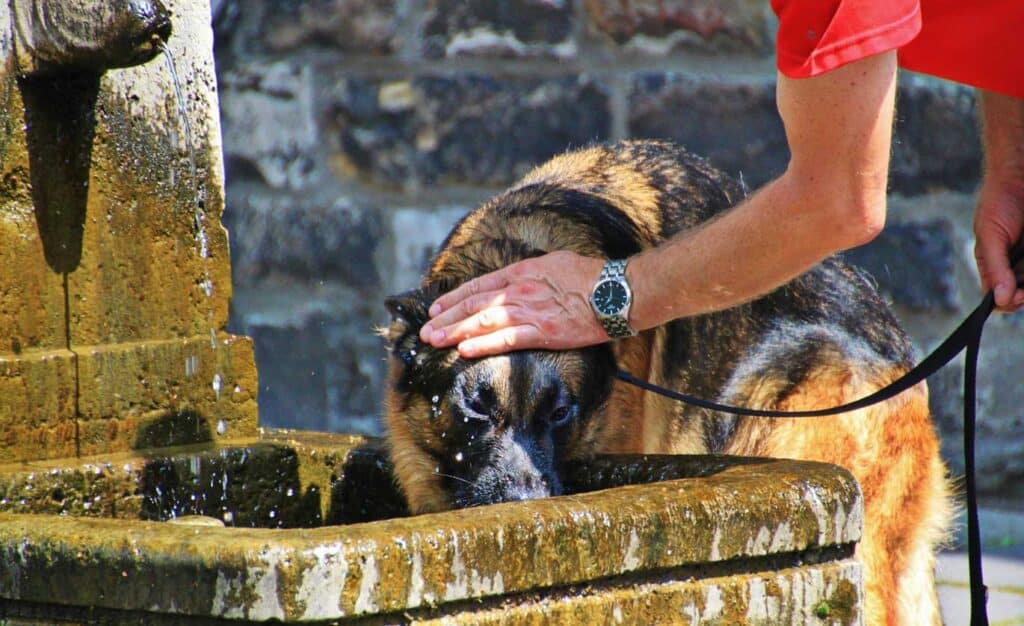We all know that during this time of year the temperature can get much hotter than what we are used to. When we are playing and having fun outside, we forget that our pets are more susceptible to dehydration, overheating, and heatstroke than we are.
Heat-related illnesses should be taken seriously; it’s crucial to be informed on how easily our pets can get overheated, how to prevent heatstroke, and how to take action if your pet is showing symptoms.
Why do cats and dogs overheat?
Dogs and cats can overheat quickly, because they have higher body temperatures than we do and are unable to cool down as efficiently. Their bodies are designed for insulation from the cold and not for cooling down in intense heat.
Did you know, on an 85-degree day, the temperature inside a car with windows slightly open could reach 102 degrees in 10 minutes, and 120 degrees in 30 minutes? Within a short period of time, our pets can experience severe damage to their brain, heart, liver, and nervous system.
Take a look at this video showing veterinarian Dr. Ernie Ward capturing what it’s like for a dog to be trapped in a car for only 30 minutes:
How to Prevent Heatstroke
Practice these safety tips to make sure your pet doesn’t get overheated:
Never leave pets in a parked car
Do not ever leave your pet in a parked car, not even for a minute with the A/C on. Temperatures inside a vehicle can rise rapidly. If you see a pet in a parked car, inform the owner or a store attendant immediately. It is also appropriate to call the police or the humane society.
Watch humidity
If the humidity level is too high, pets are unable to cool themselves down and their body temperature will rise to dangerous levels. Ideally you would like to aim for 60% humidity in your home, so be aware of levels that exceed this wherever your dog may be.
Limit outdoor exercise
On hot days, limit exercise to morning or evening hours. Asphalt can get very hot and burn their paws, so walk your pet on the grass when possible.
Water and shade
Whenever your pet is playing outside, make sure there is cold water; even add ice when there’s intense heat and humidity. Also, tree shade and tarps are ideal — not a doghouse; those will not provide relief.
Cool your pet down
Use a cooling body wrap, vest, or mat to help them release heat, or if they don’t mind baths, it’s beneficial to give them a cool soak.

What to Do If Your Pet is Showing Symptoms of Heatstroke
Monitor your pet closely when they are outside. Overheating and heatstroke symptoms include:
- Deep red or purple tongue
- Dizziness
- Excessive thirst
- Fever
- Glazed eyes
- Heavy panting or trouble breathing
- Lack of coordination
- Lethargy
- Profuse salivation
- Paleness
- Rapid heartbeat
- Rectal bleeding
- Seizure
- Unconsciousness
- Vomiting
If your pet is showing three or more of these symptoms, they may be experiencing heatstroke and you should immediately contact GVAH or the closest veterinary clinic.
If you have questions or concerns about heat-related illnesses, the staff at GVAH is more than happy to assist you. You may stop in, call our office at 701-757-3500, or email us at info@gvahstg.wpengine.com.



